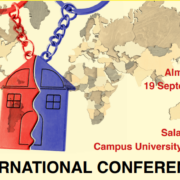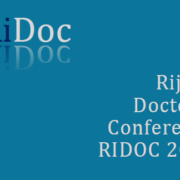The second issue of Journal of Private International Law for 2022 was released today. It features the following interesting articles:
T Kruger et. al., Current-day international child abduction: does Brussels IIb live up to the challenges?
Regulation 2019/1111 tries to tackle the new challenges arising from societal changes and legal developments in international child abduction. The result is a sophisticated set of rules centred on the child and aimed at enhancing their protection. The Regulation provides for the hearing of the child and for speedy and efficient proceedings. In it the EU acknowledges its role in the protection of human and children’s rights and sets goals towards de-escalating family conflicts. The new EU child abduction regime is at the same time more flexible than its predecessor allowing consideration of the circumstances characterising each single case in the different stages of the child abduction procedure
O Vanin, Assisted suicide from the standpoint of EU private international law
The article discusses the conflict-of-laws issues raised by such compensatory claims as may be brought against health professionals and medical facilities involved in end-of-life procedures. The issues are addressed from the standpoint of EU private international law. The paper highlights the lack of international legal instruments on assisted-suicide procedures. It is argued that the European Convention on Human Rights requires that States provide a clear legal framework concerning those procedures. The author contends that the said obligation has an impact on the interpretation of the relevant conflict-of-laws provisions of the EU.
S Avraham-Giller, The court’s discretionary power to enforce valid jurisdiction clauses: time for a change?
The paper challenges the well-rooted principle in the Anglo-American legal tradition that courts have discretion whether they should enforce a valid jurisdiction clause. The paper highlights the ambiguity and uncertainty that accompany this discretionary power, which raises a serious analytical problem. The paper then analyses two factors that shaped this discretionary power – jurisdictional theories and the general principle of party autonomy in contracts. Based on the analysis, the paper argues that the time has come to end the courts’ discretionary power with respect to the limited context of the enforcement of valid jurisdiction clauses. The proposal relies on a number of foundations: contractual considerations that relate to autonomy and efficiency; jurisdictional and procedural considerations, including the consent of a party to the jurisdiction of the court by general appearance; the increasing power of parties to re-order procedure; the more appropriate expression of the forum’s public interests and institutional considerations through overriding mandatory provisions; and finally the legal position regarding arbitration agreements and the willingness of a common law legal system such as the United Kingdom to accede to the Hague Convention on Choice of Court Agreements.
TT Nguyen, Transnational corporations and environmental pollution in Vietnam – realising the potential of private international law in environmental protection
Many transnational corporations have been operating in Vietnam, contributing to economic and social development in this country. However, these actors have caused a number of high-profile environmental incidents in Vietnam through the activities of their local subsidiaries, injuring the local community and destroying the natural ecosystem. This paper discloses the causes of corporate environmental irresponsibility in Vietnam. Additionally, this paper argues that Vietnam’s private international law fails to combat pollution in this country. To promote environmental sustainability, Vietnam should improve ex-ante regulations to prevent and tackle ecological degradation effectively. Additionally, this paper suggests that Vietnam should remedy its national private international law rules to facilitate transnational liability litigation as an ex-post measure to address the harmful conducts against the natural ecosystem of international business.
D Levina, Jurisdiction at the place of performance of a contract revisited: a case for the theory of characteristic performance in EU civil procedure
The article revisits jurisdiction in the courts for the place of performance of a contract under Article 7(1) of the Brussels Ia Regulation. It proposes a new framework for understanding jurisdiction in contractual matters by offering a comparative and historical analysis of both the place of performance as a ground for jurisdiction and its conceptual counterpart, the place of performance as a connecting factor in conflict of laws. The analysis reveals that jurisdiction in the courts for the place of performance is largely a repetition of the same problematic patterns previously associated with the place of performance as a connecting factor. The article asserts that the persisting problems with Article 7(1) of the Brussels Ia Regulation are due to the inadequacy of the place of performance as a ground for jurisdiction and advocates for the transition to the theory of characteristic performance in EU civil procedure.
Following continental European traditions, the Brussels Ia Regulation forms a rigid regime of mandatory heads of jurisdiction, generally not providing jurisdictional discretion. Nonetheless, to some limited extent, the Brussels regime includes discretional elements, in particular when it comes to lis pendens (see Articles 30, 33 and 34 of Brussels Ia). Reconsidering the strong scepticism towards forum non conveniens stipulated by the CJEU in its Owusu case, the fundamental question arises whether a substantial form of discretion concerning jurisdictional competence might be (in)compatible with the core principles of the Brussels regime.
The article discusses the enforcement of foreign judgments within the European Union and the public policy (ordre public) exception. It is mainly focused on some recent judgments of Polish and German courts. On 22nd December 2016 and 23rd of March 2021 rulings in cases of infringement of personality rights were issued by the Court of Appeal in Cracow (ordering an apology and correction). The enforcement of the former ruling was dismissed by the German Supreme Court (Bundesgerichtshof, BGH) (IX ZB 10/18) on 19th July 2018. The non-enforcement was justified by invoking German ordre public and “freedom of opinion” as a constitutional right stipulated in Article 5 of the German Constitution (Grundgesetz). A reference to the CJEU ruling of 17 June 2021 is also presented.
After presenting the issue of ordre public in the context of enforcement of foreign judgments within the EU, the authors evaluate as questionable the argumentation of the BGH in its 2018 judgment. The Polish ruling ordering the defendant to correct and apologise for the false statement was included by the BGH in the category of “opinion” (Meinung) protected by the German Constitution. Enforcement of the judgment of the Polish court in Germany was held to be contrary to this German constitutional right and the enforceability of the Polish judgment was denied as being manifestly contrary to German public policy.
The authors support the functioning of the ordre public clause in intra-EU relations. It is justified inter alia by the large differences in EU legal systems and future possible changes. However, the common standards of the ECHR should be particularly taken into consideration when applying the public policy clause, because they co-shape the EU legal systems.


